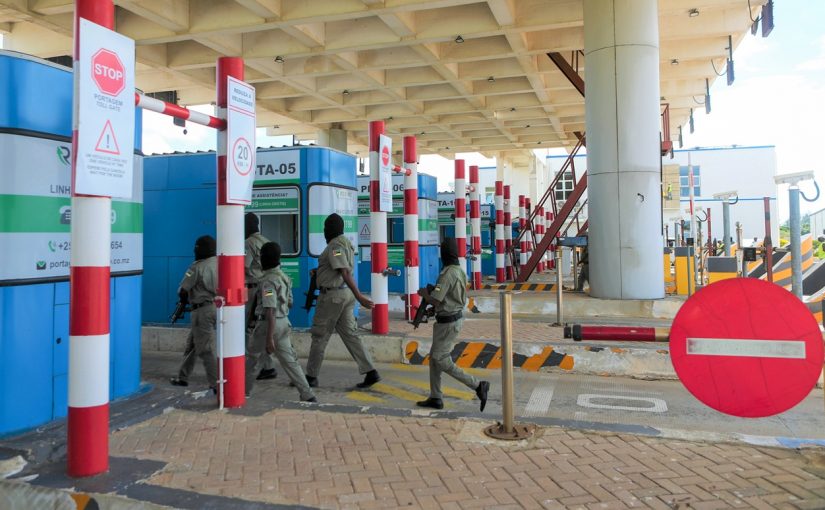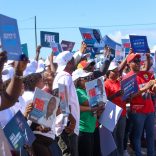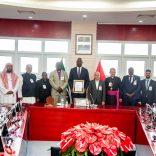Mozambique: Chapo launches Local Economic Development Fund - Photos
Mozambique: Government wants road concessionaires to be aware of social responsibility

FilE - For illustration purposes only. [File photo: Lusa]
The Prime Minister of Mozambique said this Friday that negotiations with road concessionaires to stop protests against tolls in Mozambique must include aspects linked to social responsibility.
“We are negotiating and the negotiations cover the issue of social responsibility, in addition to the prices charged at tolls,” Benvinda Levy told the media, speaking on the sidelines of the Frelimo Central Committee meeting in Matola, on the outskirts of Maputo.
At issue are successive blockades of toll booths, especially in Maputo city and province, with protesters demanding an end to charges, in response to a document published by former presidential candidate Venâncio Mondlane, which includes the demand that tolls not be charged throughout the country.
On Tuesday, the Mozambican government announced that studies were underway with road concessionaires to subsidize the payment of tolls for public passenger transport, with a view to reducing their costs following recent vandalism.
“The government continues to work with concessionaires to find alternatives to the costs of paying tolls to public passenger transport operators, in order to improve the cost of transport for citizens,” said Council of Ministers spokesperson Inocêncio Impissa after a cabinet meeting in Maputo on Tuesday.
The Mozambique Road Network (Revimo), responsible for the construction, maintenance and operation of several national roads, announced on January 25 that it would resume the collection of toll fees in the country, which had been suspended due to post-election protests.
The announcement led hundreds of protesters to occupy and block access between the toll booth and the Katembe bridge on January 27, with traffic to and from Maputo blocked by motorists protesting the payment.
South Africa’s Trans African Concessions (TRAC), the concessionaire of the N4 highway, pted to which connects Maputo to the Ressano Garcia border, also attempted resuming toll collection on 23 January, similarly causing popular outrage.
The resumption led to protesters blocking the access roads to the N4 to Maputo on 29 January, with protests that led to the vandalism of part of TRAC’s facilities near the Maputo toll booths, including the destruction of two vehicles.
Almost 100 kilometres long in Mozambique, the N4 – which connects Tshwane, Gauteng (South Africa) and the port of Maputo (Mozambique) – was built by TRAC under a 30-year concession, involving the governments of both countries, with the concessionaire assuming the costs of construction and maintenance, after which the road, which has a total of 570 kilometres, can revert to the respective states.
“The concession contract ends in February 2028,” an official source from the company told Lusa on January 27.
Mozambique has been experiencing a climate of social unrest since October of last year, with demonstrations and strikes called, at first, by former presidential candidate Venâncio Mondlane, who rejects the election results that gave victory to the Mozambique Liberation Front (Frelimo) candidate, Daniel Chapo.
Smaller-scale protests are still taking place in different parts of the country with people, in addition to contesting the October 9 election results, protesting the rising cost of living and other social problems.
Since October, at least 327 people have died, including around two dozen minors, and around 750 have been shot during the protests, according to the electoral platform Decide, a non-governmental organization that monitors electoral processes in Mozambique.












Leave a Reply
Be the First to Comment!
You must be logged in to post a comment.
You must be logged in to post a comment.